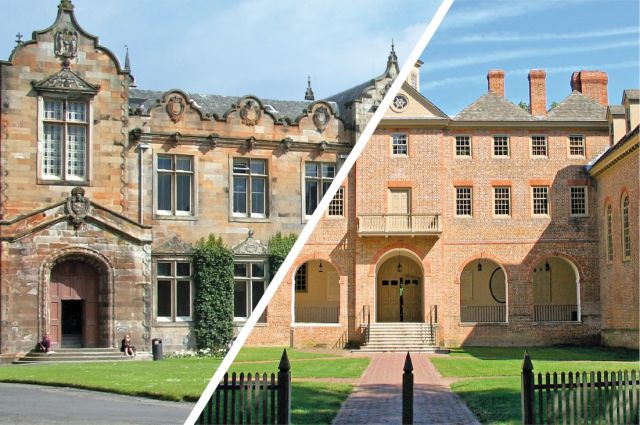During the past few weeks, I’ve been settling into my role as the Graduate Fellow for the William & Mary/St Andrews Joint Degree Programme at the Cohen Career Center. In mid-October, after several weeks of observing the Center’s career advisors, I started accepting my own advising appointments, and have been meeting one-on-one with JDP students to discuss internships, job searching, resumes, and anything else career-related. Every Wednesday, I participate in Quick Advising, the Career Center’s walk-in service, where I meet with any student for 15-20 minutes regardless of whether they’re in the JDP Programme. I’ve also been scheduling meetings with the Programme’s Peer Advisors, JDP students who organize social activities and other events, to get feedback on what students need in terms of career-related resources. When I’m not preparing workshops or meeting with students, I’ve been gathering alumni information on Linkedin to get a sense of where students land after graduation.
And last week, I presented the Career Center’s first JDP workshop for the academic year, “Translating the JDP Experience.”

Typically the JDP Fellow offers at least one workshop a semester, and this particular example developed out of conversations with my supervisors at William & Mary, Career Centre staff at St Andrews, and Peer Advisors. When I asked the Peer Advisors what they thought students most needed in terms of workshops, they unanimously recommended sessions that were field-specific, since different majors have varying deadlines for internships, opportunities in terms of potential jobs, and so forth. Based on that recommendation, I’m currently developing three new workshops addressing International Relations, Economics, and the Humanities, which will take place in the spring.
For this first workshop though, we decided to keep it general by covering topics that would benefit anyone in the program regardless of major. Given ongoing pandemic conditions, I opted to hold the workshop virtually. I divided the session into three sections: identifying transferable skills developed through the program; effectively describing those skills and experiences on resumes, cover letters, or interviews; and offering strategies for job searching and networking in a pandemic environment. During this last part in particular we encouraged students to take advantage of the networking resources available at both William & Mary and St Andrews, as both universities offer a variety of programs designed to get students in touch with alumni.
The presentation itself was a synthesis of two older workshops designed by previous Graduate Fellows (and I’m extremely grateful to them for their labor), with a few new slides from both St Andrews staff and me addressing the pandemic and other current topics. While I served as the main presenter, I had a staff member from St Andrews participate to offer UK-specific suggestions regarding resumes or cover letters. They also discussed networking resources available through St Andrews. To conclude the workshop, I had a recent alum talk about their post-graduation experiences. As someone who has gone through the program, they know better than anyone the realities of navigating the transition to the job market and the transferable skills developed through getting a joint degree.
We covered a lot of ground in an hour, and hopefully students got something beneficial out of it. Thinking ahead to the spring workshops, I definitely want to make sure St Andrews staff participate again, as they’re more familiar with opportunities and requirements in the UK. I also want to continue having alumni take part, as they have an experiential knowledge of the program that is invaluable for students.
In terms of format, I might consider going with a hybridized approach, presenting to an in-person audience at the Career Center while having the presentation live streamed over Zoom. As a public speaker, I not only get a lot of my energy from the audience, but adapt my presentation to them by gauging relative interest through facial expressions and other body language. During the virtual workshop, the students had their cameras off and microphones muted. While that’s totally understandable, it does produce an uncanny experience where you’re essentially talking to yourself but with an awareness of an invisible audience.
Ultimately, the important thing is that students get something from these workshops. Although my dissertation remains my top priority, I take this work seriously because I have a lot of admiration for these students. Earning a degree from two universities in two different countries is a challenge, both academically and pragmatically. Yet here they are doing this work in a pandemic. As the Graduate Fellow, I feel I owe to them to provide quality programming. Fortunately, through conversations with Peer Advisors and with students in one-on-one advising appointments, I have been getting a sense of what they’re actually looking for in terms of resources. Now that I’ve been here for a few months and have gotten a better sense of the Programme, I can take those suggestions and put them to work in the spring sessions.